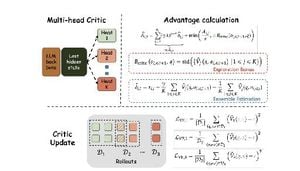São Vicente, Brazil – Privacy concerns have skyrocketed following allegations from 35-year-old entrepreneur and influencer Milena Augusta, who reported being spied on by drones at her seaside apartment. The disturbing incidents, which occurred during her vacation, have raised questions about the adequacy of current drone regulations and the protection of personal privacy.
Milena revealed she was caught off-guard by the drone just as she prepared to sleep on February 13. Caught without clothes, she spotted the drone hovering outside her window. "I was on my phone, as usual, before sleeping, when the drone appeared and lingered at my window. I was so startled I couldn’t react, just stared at it," Milena shared during her account. This marked the second time within weeks she became the target of such spying; previously, she noticed the drone’s presence for only a brief moment, yet the experience remained unsettling.
The ordeal not only shattered her sense of safety but also left Milena grappling with the fear of potential leaks of sensitive footage. "It's horrible; I'm terrified some photo or video will be posted online," she expressed, highlighting the distress of being filmed without consent.
Milena, who resides primarily in Italy where she runs a café with her husband, noted her discomfort upon returning to Brazil, where she usually reunites with her family during the festive seasons. Her story struck many, as through social media, she shared the episode, garnering public attention and responses from concerned citizens and officials alike.
Onlookers and critics alike have voiced their concerns over the potential for such incidents to become more common with the increasing accessibility of drone technology. According to the Brazilian Civil Aviation Regulation (RBAC-E), drones can operate at heights of up to 400 feet or roughly 120 meters, and must maintain at least 30 meters of distance from individuals uninvolved with drone operations. Yet, these guidelines often fail to deter invasive actions.
The Municipality of São Vicente responded on February 12 after Milena lodged her complaint, assuring the public they were reviewing existing drone regulations. "We regret what happened and will work on measures to prevent similar occurrences," the municipality stated, pointing out the role of the National Civil Aviation Agency (ANAC) as the regulatory body overseeing drone usage. They emphasized the necessity of filing official police reports for such privacy violations.
Milena's alarming experience has shed light on the under-regulated sphere of drone usage. The Brazilian authorities are now under pressure to reassess and reinforce privacy laws adaptable to modern technology. A spokesperson from the São Paulo State Public Security Department (SSP) confirmed the investigation, as they evaluate the reported incidents to ascertain any misconduct linked to drone operations.
Previously, Milena had observed unusual activity when she reported seeing someone near her building only two weeks before this incident, spotting a man riding a motorcycle who pulled out his drone to film the buildings, causing her to connect potential dots amid her growing feelings of unease. Such narratives could ignite policy changes to protect civilians from being subject to similar invasions of privacy.
"It first felt like I was losing my mind, worrying if I was being targeted, perhaps because someone knew my habits or routines. It's unsettling to think someone could invade your personal space like this," she remarked, reflecting on the emotional toll taken on her comfort within her home.
The broader implication of these occurrences resonates as public awareness and discourse on drone privacy intensifies. Expert voices are calling for legal frameworks to designate clear boundaries on drone operations, enforcing consequences for violations of privacy.
Milena's case echoes the sentiments shared by lawmakers and community leaders alike voicing out against the inadequacies of the current sky-high drone craze. Measures have been suggested to create awareness among drone operators about respecting individual privacy rights.
Having made her ordeal public and urged others to report such behaviors, Milena continues to highlight the necessity for vigilance and protective measures against potential exploits of technology. This unfortunate episode serves as both a warning and call to arms for stronger privacy protections as we navigate through this new technological frontier.
Until effective regulations are reinforced, citizens like Milena remain wary, reluctant to embrace the convenience of drone technology due to fear of intrusions and privacy violations from aerial views once perceived as harmless.



